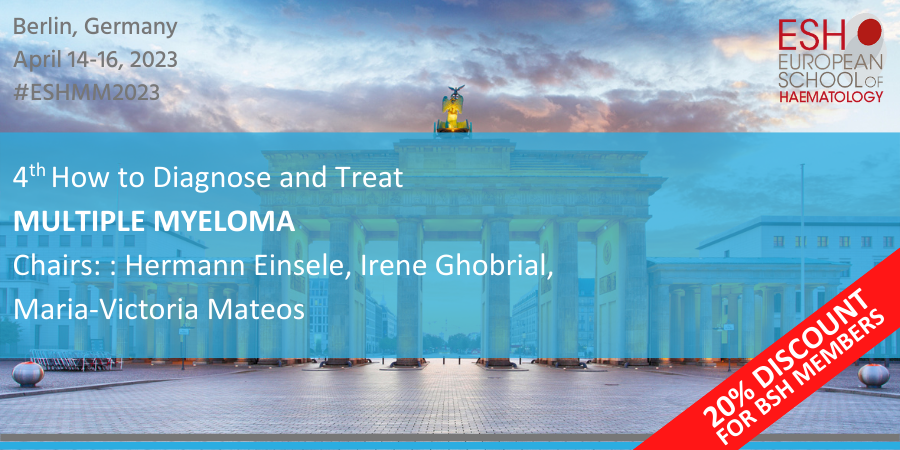
Date: Friday 14 - Sunday 16 April 2023
Venue: Vienna House Andels' Berlin, Germany
ESH How to Diagnose and Treat conferences are disease-specific meetings that address state-of-the-art diagnostic and clinical management. They are based on the presentation and analysis of real clinical cases. Voting technology is used as a self-evaluation tool and to increase scientific interaction. Continuing Medical Education (CME) credit points will be awarded to physicians for the time they will spend at the meeting improving their knowledge and skills. ESH is a provider of the European Haematology CME system.
Posters and Brief Oral Communications:
Registered participants are invited to submit their clinical cases and abstracts. Selected clinical cases and abstracts will be presented as brief oral communications or posters.
Call for abstracts: deadline 29 January 2023
This meeting will be valuable to you if you are looking for:
- A cutting-edge scientific program – from basic science to clinical and therapeutic applications and perspectives
- Multiple opportunities for scientific interaction with an international faculty of distinguished experts
- An emphasis on critical discussion The meeting will provide clinicians and scientists with state-of-the-art recommendations regarding patient care and insight in controversies in the field.
The meeting will be of interest to:
- Senior biologists and clinicians, including experts in the field (MD, PhD, MD-PhD)
- Junior scientists and clinicians (MD, PhD)
- PhD candidates and clinical residents still in-training Learning
Objectives:
Upon completion of this CME activity, participants include:
- Update on the diagnosis and profiling of myeloma
- Upfront treatment of transplant eligible and non-eligible myeloma patients
- Treatment of relapsed myeloma patients
- Risk-adapted therapy
- Immune therapy
- Diagnosis and treatment of plasma cell dyscrasias other than multiple myeloma Scientific
Topics:
- How I treat smoldering myeloma
- How I treat newly diagnosed multiple myeloma
- From risk stratification to risk-based therapy?
- Should we use MRD testing to determine therapy in multiple myeloma?
- Is there a future role of autologous stem cell transplantation?
- How I treat relapsed multiple myeloma
- The FDA/EMEA and Foundations perspective on multiple myeloma
- Should every patient receive daratumumab in first line?
- You can’t be immune for immune therapy anymore
- Other plasma cell dyscrasias
- The future of multiple myeloma
The programme will include:
- Plenary Sessions
- Interactive Case Presentations
- Roundtables
- Panel Discussions
- Debates
- Poster Walks
- Meet the Expert Sessions
- Voting technology
Conference website and registration









